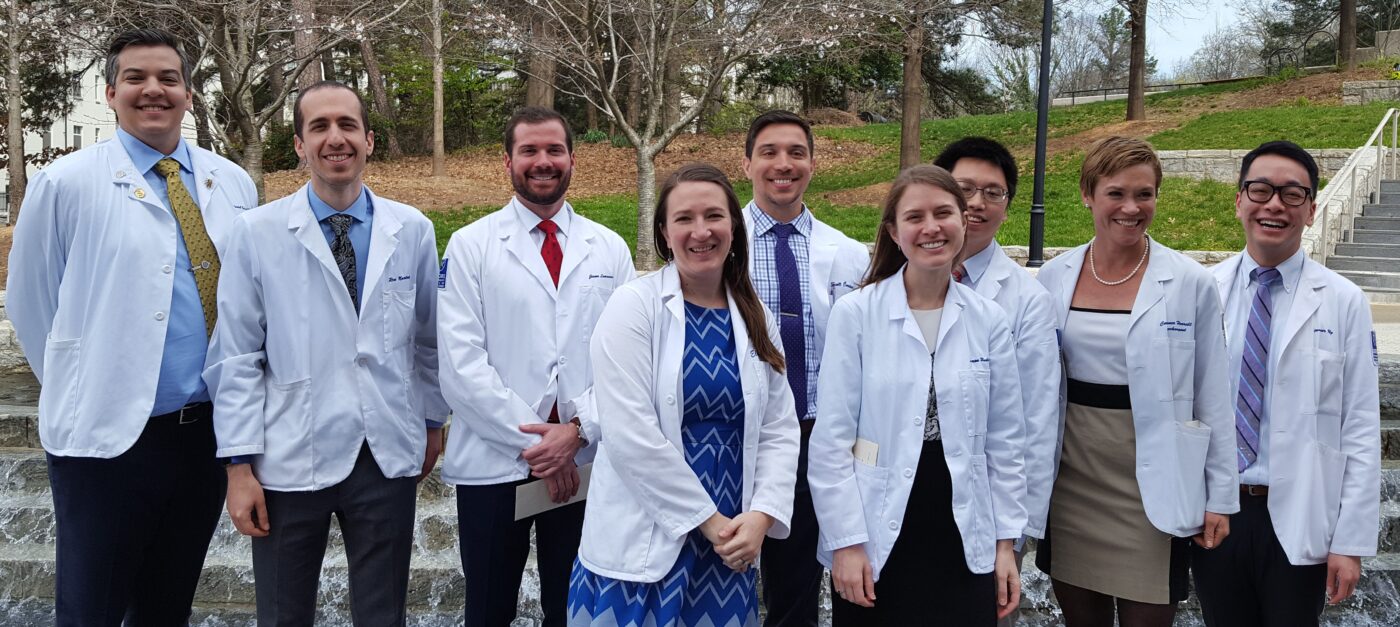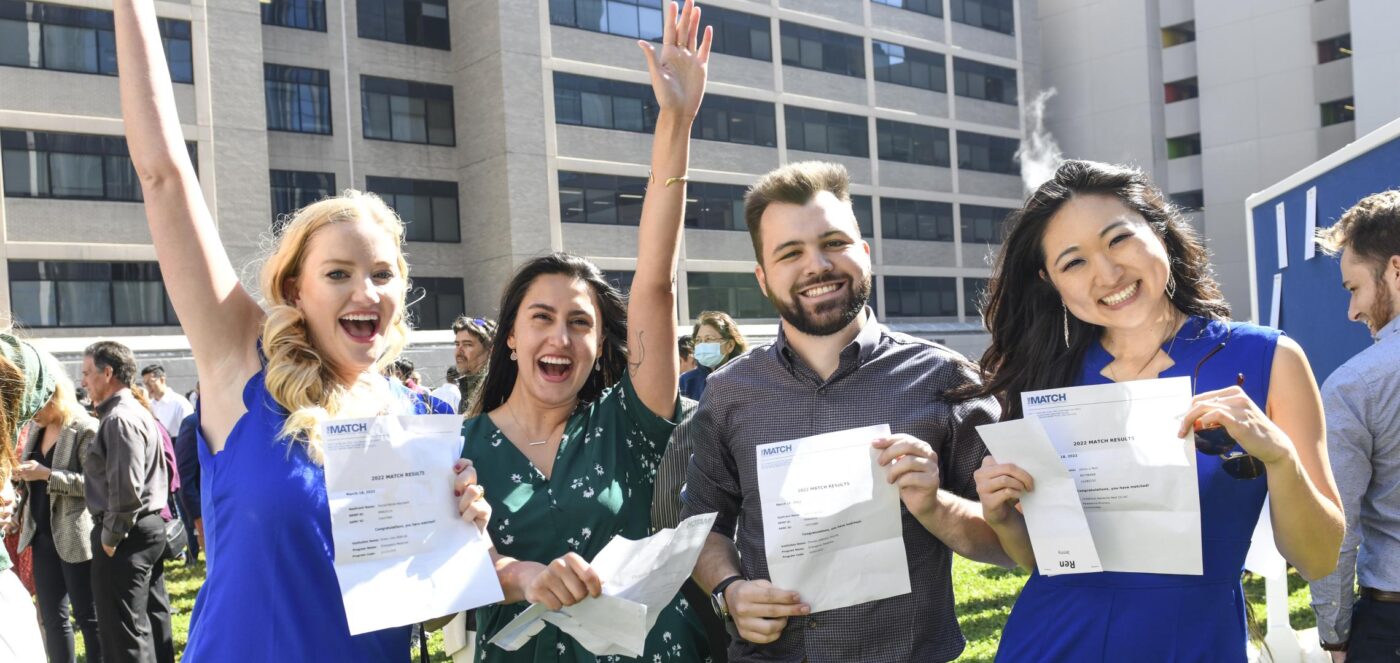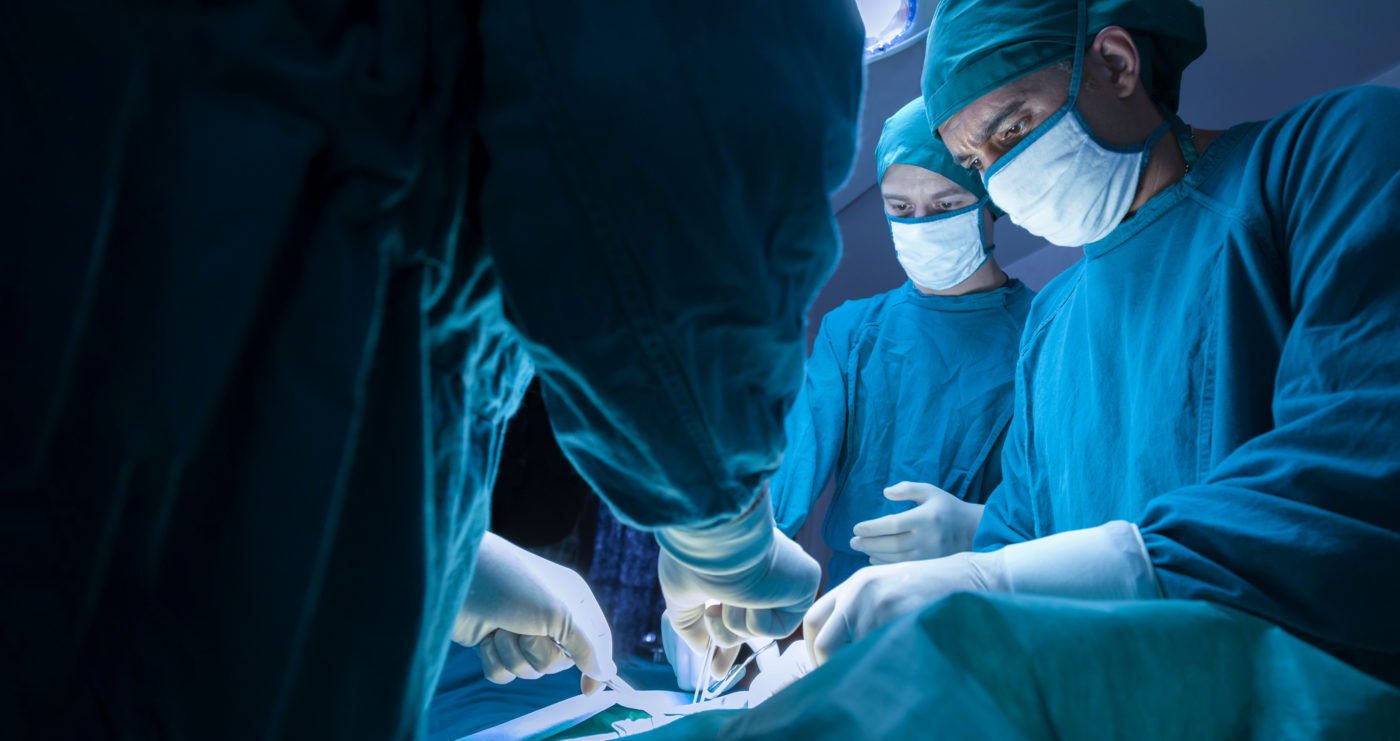Introduction
Medical School Match Day 2025 is a pivotal event for medical students across the United States. It is the day when aspiring physicians learn where they will complete their residency training and take the next step in their medical careers. This definitive guide will provide you with a comprehensive understanding of Match Day, its significance, and how to succeed in the residency matching process. Let’s dive in!
What Is Match Day 2025?
Match Day is an annual event held in March, during which medical students across the United States learn where they will complete their residency training. The National Resident Matching Program (NRMP) organizes this event, using a computer algorithm to match medical students with residency programs based on the students’ preferences and the programs’ criteria.
Residency training is an essential part of a physician’s education, as it provides hands-on experience in a specific medical specialty under the supervision of experienced physicians. The length of residency training varies depending on the chosen specialty, typically ranging from three to seven years. Match Day is, therefore, a crucial milestone in the journey of aspiring physicians, as it determines where they will spend the next phase of their medical careers.
The Timeline Leading Up to Match Day
The months leading up to Match Day are filled with important events and deadlines that medical students must navigate to successfully participate in the matching process. Here is a brief timeline of the key milestones:
- June to September of the year before Match Day: Students begin researching residency programs and gathering application materials.
- September: The Electronic Residency Application Service (ERAS) opens for students to submit their applications to residency programs.
- October: Residency programs begin reviewing applications and extending interview invitations to candidates.
- November to January: Residency interviews take place, giving students the opportunity to learn more about the programs and make a positive impression.
- February: Students submit their Rank Order List, ranking their preferred residency programs in order of preference.
- March: Match Week begins, culminating in Match Day when students learn where they have matched for residency.
The Match Process: How It Works
The NRMP uses a computer algorithm to match medical students with residency programs based on both the students’ and programs’ preferences. The matching process consists of several steps:
Students submit their Rank Order Lists (ROL), ranking their preferred residency programs in order of preference.
Residency programs also submit Rank Order Lists, ranking the students they have interviewed and would like to accept into their program.
The NRMP’s computer algorithm compares the students’ and programs’ Rank Order Lists to find the best possible match for both parties. The algorithm prioritizes the students’ preferences, attempting to match each student with their highest-ranked program that also ranked them. The process continues until all available residency positions are filled or no more suitable matches can be made.
How to Prepare for Match Day
Successfully navigating the residency application process and maximizing your chances of matching with a preferred program requires thorough preparation. Here are some steps you can take to prepare for Match Day
Researching Residency Programs
Start by researching residency programs in your desired specialty. Consider factors such as location, program size, hospital affiliation, patient population, and the program’s reputation. Utilize resources like the American Medical Association’s (AMA) FREIDA Online database, which provides information on accredited residency programs in the United States.
ERAS Residency Application: The Definitive Guide
The Electronic Residency Application Service (ERAS) is the online platform used to submit applications to residency programs. Familiarize yourself with the application requirements and gather all necessary materials, including your medical school transcript, personal statement, letters of recommendation, and United States Medical Licensing Examination (USMLE) scores. For a comprehensive guide on the ERAS application process, visit our ERAS Residency Application: The Definitive Guide.
Preparing for Residency Interviews
Residency interviews are a critical component of the application process. They provide an opportunity for programs to evaluate you as a candidate and for you to learn more about the program. Prepare for interviews by researching common interview questions, practicing your answers, and learning as much as possible about each program.
Creating Your Rank Order List
After completing your interviews, carefully consider which programs you would most like to attend and rank them in order of preference. Be strategic in your ranking, considering factors such as program reputation, location, and your personal fit within the program.
Preparing for the Supplemental Offer and Acceptance Program (SOAP)
In the event you do not match with a residency program on Match Day, you may participate in the Supplemental Offer and Acceptance Program (SOAP). This process allows unmatched applicants to apply for unfilled residency positions. Be prepared for this possibility by familiarizing yourself with the SOAP process and eligibility requirements.

What to Expect on Match Day
On Match Day, medical students across the United States gather with their classmates, friends, and family to receive their match results. The event typically takes place at medical schools, with students opening envelopes or receiving emails containing their match results. It is a day filled with anticipation, excitement, and, for some, disappointment. However, it marks the beginning of a new chapter in the lives of aspiring physicians.
The Emotional Impact of Match Day
Match Day is an emotional event for medical students. The anticipation leading up to the day can be intense, and the range of emotions experienced upon learning one’s match results can vary greatly. Some students may feel relief, joy, and excitement, while others may experience disappointment, stress, or uncertainty. It is important to remember that the matching process is highly competitive and that not matching with a preferred program does not define your worth or potential as a physician.
Understanding the Most Competitive Medical Specialties
Some medical specialties are more competitive than others, with a higher number of applicants competing for a limited number of residency positions. To gain insight into the most competitive medical specialties in the United States, visit our article on the 10 Most Competitive Medical Specialties in the United States.
Tips for International Medical Graduates
International Medical Graduates (IMGs) face unique challenges in the residency matching process, including additional requirements and a more competitive landscape. To improve your chances of matching, consider the following tips:
- Gain clinical experience in the United States to demonstrate your familiarity with the U.S. healthcare system and to obtain strong letters of recommendation from U.S. physicians.
- Prepare for and excel in the United States Medical Licensing Examination (USMLE) to show your medical knowledge is on par with U.S. medical graduates.
- Apply to a diverse range of residency programs, including those with a history of accepting IMGs.
- Network with other IMGs who have successfully matched to gather insights and advice.
Medical Residency Advising Services
Navigating the residency application process can be challenging, and having expert guidance can make a significant difference in your success. Medical residency advising services, such as those offered by Medical Aid, provide personalized assistance in crafting a compelling ERAS application, preparing for residency interviews, and optimizing your Rank Order List. To learn more about our medical residency advising services and to schedule a call, visit this link.
The Role of Couples in the Match
Couples who are both pursuing medical careers may want to match in the same geographic area or even the same institution. The NRMP allows couples to participate in the match as a pair, linking their Rank Order Lists together. This ensures that the algorithm considers both partners’ preferences simultaneously and aims to match them in the same region or program.
To participate as a couple, both partners must register individually with the NRMP and then identify themselves as a couple within the system. The couple will submit a single, combined Rank Order List that reflects their mutual preferences. While participating as a couple can improve the chances of matching in the same area, it may also limit the available options for each partner.
Strategies for Success in the Match Process
To maximize your chances of matching with a preferred residency program, consider employing the following strategies:
Apply Broadly
Apply to a wide range of programs, including both your top choices and those you believe you have a better chance of matching with. This increases the likelihood of securing interviews and ultimately matching with a program.
Tailor Your Application
Customize your personal statement and other application materials to reflect the unique aspects and values of each program you apply to.
Seek Mentorship
Connect with upperclassmen, alumni, or faculty members who have experience with the matching process and can offer guidance and advice.
Be Proactive in Your Interview Preparation
Research each program you interview with, practice answering common interview questions, and be prepared to articulate your unique strengths and fit within the program.
Stay Organized
Keep track of deadlines, interview dates, and other important information throughout the application process. This will help ensure you submit all required materials on time and can focus on your interviews and Rank Order List.
Making the Most of Residency Interviews
Residency interviews are a crucial part of the match process. In addition to evaluating your fit within a program, they also provide an opportunity for you to assess whether the program aligns with your goals and preferences. To make the most of your residency interviews, consider the following tips:
- Be Punctual and Prepared: Arrive on time (or log in early for virtual interviews) and ensure you have all necessary materials and information readily available.
- Dress Professionally: First impressions matter. Dress professionally and conservatively to demonstrate your commitment to the profession and respect for the process.
- Be Engaged and Ask Thoughtful Questions: Show your interest in the program by asking informed questions about the program’s curriculum, clinical experiences, faculty support, and research opportunities.
- Take Notes: After each interview, jot down your impressions of the program, the people you met, and any important details you want to remember when creating your Rank Order List.
- Send Thank-You Notes: Following your interviews, send thank-you notes to the program director and any faculty members or residents who interviewed you. This shows your appreciation for their time and can leave a lasting positive impression.
Managing Stress and Anxiety During the Match Process
Residency interviews are a crucial part of the match process. In addition to evaluating your fit within a program, they also provide an opportunity for you to assess whether the program aligns with your goals and preferences. To make the most of your residency interviews, consider the following tips:
- Be Punctual and Prepared: Arrive on time (or log in early for virtual interviews) and ensure you have all necessary materials and information readily available.
- Dress Professionally: First impressions matter. Dress professionally and conservatively to demonstrate your commitment to the profession and respect for the process.
- Be Engaged and Ask Thoughtful Questions: Show your interest in the program by asking informed questions about the program’s curriculum, clinical experiences, faculty support, and research opportunities.
- Take Notes: After each interview, jot down your impressions of the program, the people you met, and any important details you want to remember when creating your Rank Order List.
- Send Thank-You Notes: Following your interviews, send thank-you notes to the program director and any faculty members or residents who interviewed you. This shows your appreciation for their time and can leave a lasting positive impression.
The Importance of Building a Strong Professional Network
Developing a robust professional network is essential for medical students as they progress through their education and careers. Your professional network can provide valuable resources, support, and opportunities for growth. Here are some tips for building and maintaining a strong professional network:
- Attend Conferences and Events: Conferences, workshops, and other professional events provide opportunities to meet like-minded individuals in your field. Make an effort to attend these events and engage with fellow attendees.
- Participate in Online Forums and Groups: Join online discussion forums, social media groups, and other platforms relevant to your field. Participate in discussions, ask questions, and share your experiences to make connections with your peers.
- Connect With Alumni: Reach out to alumni from your medical school who have pursued a similar career path. They can offer valuable advice and insights into the residency application process and may be able to connect you with additional resources.
- Foster Relationships With Mentors and Faculty: Maintain strong relationships with faculty members and mentors, as they can provide guidance, support, and opportunities for networking within their professional circles.
- Engage in Extracurricular Activities: Participate in extracurricular activities, such as volunteering, research, or student organizations, to meet others with shared interests and expand your network.
- Maintain and Strengthen Connections: Building a professional network is an ongoing process. Stay in touch with your connections, offering support and assistance when needed and sharing updates on your own progress.
The Role of Away Rotations in the Match Process
Away rotations, also known as visiting student clinical electives or audition rotations, can play a role in the residency match process. During these rotations, medical students complete clinical electives at institutions other than their own, gaining exposure to different healthcare settings and residency programs. Here are some benefits of completing away rotations:
- Broaden Your Clinical Experience: Away rotations provide opportunities to work with diverse patient populations and healthcare systems, enhancing your clinical skills and knowledge.
- Demonstrate Interest in a Residency Program: Completing an away rotation at a program you’re interested in can show your dedication and commitment to that program, potentially increasing your chances of receiving an interview invitation.
- Obtain Letters of Recommendation: Away rotations offer the chance to work closely with faculty members at other institutions, allowing you to obtain strong letters of recommendation from physicians outside your home institution.
- Assess Program Fit: Participating in an away rotation can give you a firsthand look at a residency program’s culture, curriculum, and facilities, helping you determine if it’s a good fit for you.
The Role of Research in Residency Applications
Involvement in research can be a valuable asset during the residency application process, as it demonstrates your commitment to advancing medical knowledge and your ability to think critically and solve problems. Here’s how to incorporate research into your residency application:
- Seek Out Research Opportunities: Actively seek research opportunities during your medical school education, either through your institution’s research programs or by connecting with faculty members engaged in research.
- Choose Projects Relevant to Your Specialty: If possible, select research projects that align with your chosen specialty, as this can show your dedication to that field and enhance your knowledge of the subject.
- Present Your Research: Share your research findings at conferences, workshops, or other professional events to demonstrate your expertise and commitment to the field.
- Publish Your Work: Aim to publish your research in peer-reviewed journals, as this can strengthen your application and showcase your contributions to the medical community.
Dealing with Unmatched Outcomes
In the event you do not match with a residency program, it is essential to remember that this outcome does not define your potential as a physician. Unmatched applicants have several options to consider:
Participate in the Supplemental Offer and Acceptance Program (SOAP)
As mentioned earlier, SOAP allows unmatched applicants to apply for unfilled residency positions. Be prepared for this possibility and familiarize yourself with the SOAP process and eligibility requirements.
Pursue Research or Clinical Opportunities
If you do not match, consider seeking research or clinical positions to gain additional experience and strengthen your application for the next match cycle.
Reassess Your Application Strategy
Reflect on your application materials, interview performance, and the programs you applied to. Identify areas where you can improve and consider seeking guidance from mentors or medical residency advising services to strengthen your application for the next match cycle.

Celebrating Match Day 2025
Regardless of the outcome, Match Day is a significant event in the lives of medical students, marking the culmination of years of hard work and dedication. It is essential to celebrate this milestone and recognize the support and encouragement provided by friends, family, and mentors throughout the journey.
Consider hosting a virtual or in-person gathering with your loved ones to share the moment and express gratitude for their support. Additionally, acknowledge your accomplishments and the resilience you have demonstrated throughout the process.
Medical School Match Day 2025 marks an important milestone for medical students across the United States, determining where they will complete their residency training and continue their journey to becoming physicians. By understanding the residency matching process, preparing thoroughly, and utilizing resources such as medical residency advising services, you can increase your chances of matching with a preferred program and launching a successful medical career.





